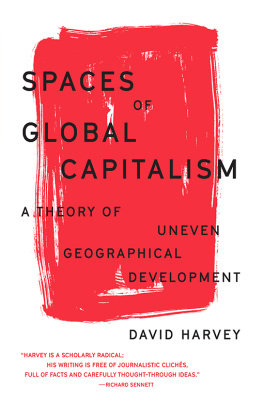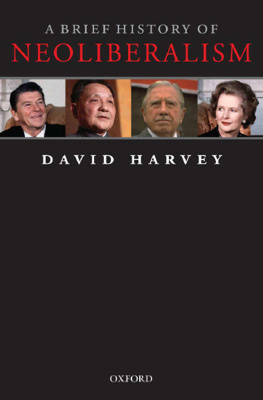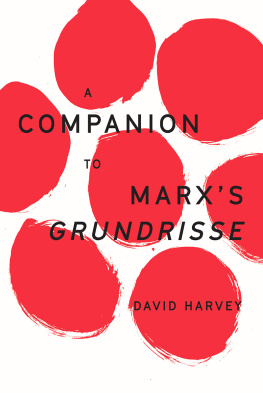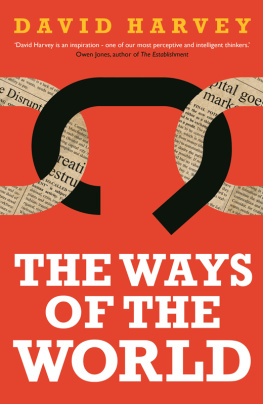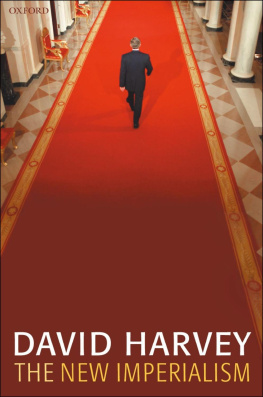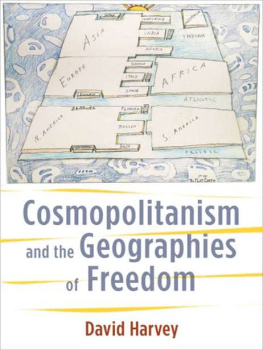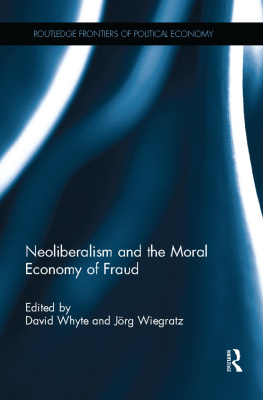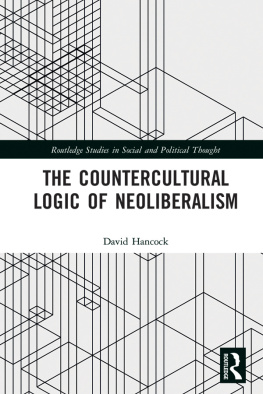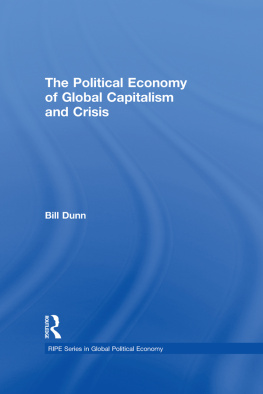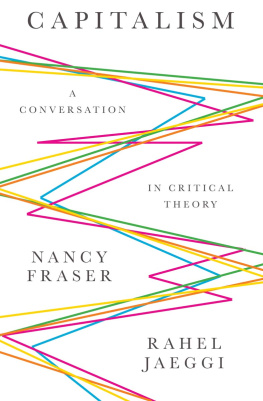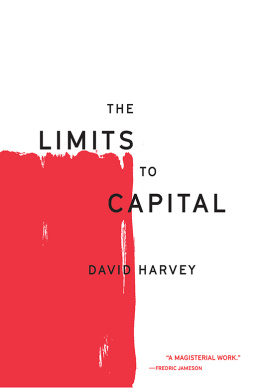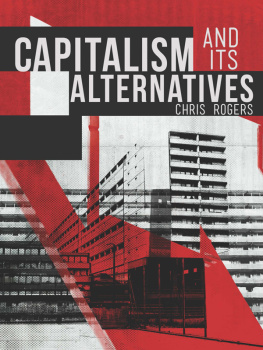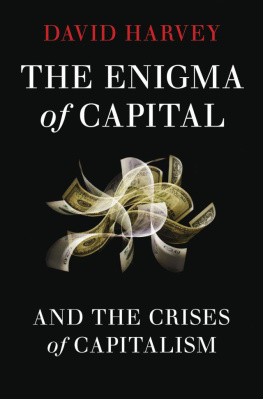Contents

SPACES OF GLOBAL CAPITALISM
SPACES OF
GLOBAL CAPITALISM
_______________
David Harvey

This edition published by Verso 2019
First published by Verso 2006
Published as Spaces of Neo-liberalization by Franz Steiner Verlag in 2005
David Harvey 2005, 2006, 2019
All rights reserved
The moral rights of the author have been asserted
1 3 5 7 9 10 8 6 4 2
Verso
UK: 6 Meard Street, London W1F 0EG
US: 20 Jay Street, Suite 1010, Brooklyn, NY 11201
versobooks.com
Verso is the imprint of New Left Books
ISBN-13: 978-1-78873-465-3
ISBN-13: 978-1-78873-466-0 (UK EBK)
ISBN-13: 978-1-78873-467-7 (US EBK)
British Library Cataloguing in Publication Data
A catalogue record for this book is available from the British Library
Library of Congress Cataloging-in-Publication Data
A catalog record for this book is available from the Library of Congress
Typeset in Bembo by Hewer Text UK, Ltd, Edinburgh
Printed and bound by CPI Group (UK) Ltd, Croydon CR0 4YY
CONTENTS
Introduction:
Hettner-Lecture 2004 in Heidelberg
The Department of Geography, University of Heidelberg, held its eighth Hettner-Lecture from June 28 to July 2, 2004. This annual lecture series, named after Alfred Hettner, Professor of Geography in Heidelberg from 1899 to 1928 and one of the most reputable German geographers of his day, is devoted to new theoretical developments in the crossover fields of geography, economics, the social sciences, and the humanities.
During their stay, the invited guest-speakers present two public lectures, one of which is transmitted via teleteaching on the Internet. In addition, several seminars give graduate students and young researchers the opportunity to meet and converse with an internationally acclaimed scholar. Such an experience at an early stage in the academic career opens up new perspectives for research and encourages critical reflection on current theoretical debates and geographical practice.
The eighth Hettner-Lecture was given by David Harvey, Distinguished Professor of Anthropology at the City University of New York Graduate Center. David Harvey is widely recognized as one of the most innovative and influential geographical thinkers of the last 40 years. His Explanation in geography (1969) provided a major contribution to the methodological debate over geography as a spatial science that captivated geographers in the 1960s. Harveys subsequent move from the UK where he had lectured at Bristol University to the Johns Hopkins University in Baltimore coincided with a profound shift in the intellectual foundations of his research. With Social justice and the city (1973), Harvey produced a pioneering text in critical urban studies that explored the relevance of Marxist ways of thinking to account for and challenge poverty and racism in Western cities. His The limits to capital (1982), a geographical extension of Marxs theory of capitalism, firmly established Harvey as leading Marxist geographer with his reputation extending well beyond the confines of the discipline. Harvey returned to urban issues in The urbanization of capital (1985) and Consciousness and the urban experience (1985), before embarking on his most successful book to date, The condition of postmodernity (1989), a materialist critique of postmodernism written while he held the Half-ord Mackinder Chair in Geography at the University of Oxford. More recently, Harvey has revisited and further explored issues of social justice and the idea of utopia in Justice, nature and the geography of difference (1996) and Spaces of hope (2000). His latest books are Paris, capital of modernity (2003) and The new imperialism (2003).
During the Hettner-Lecture 2004 David Harvey presented two public lectures entitled Free market capitalism and the restoration of class power and Towards a general theory of uneven geographical development, both of which are published here in revised form, together with an essay on Space as a key word and a short photographic documentation. Three seminars with graduate students and young researchers from Heidelberg and nineteen other European and US universities took up issues raised in the lectures. The seminars were entitled The new imperialism, Geographical knowledges/political powers, and Space as a key word.
We should like to express our gratitude to the Klaus Tschira Foundation for generously supporting the Hettner-Lecture. Particular thanks are due to Dr. h.c. Klaus Tschira, our benevolent host in the Studio of the foundations magnificent Villa Bosch. We would like to thank Prof. Dr. Angelos Chaniotis, Vice-Rector of Heidelberg University, and Prof. Dr. Peter Hofmann, Dean of the Faculty of Chemistry and Earth Sciences, for their welcome addresses at the opening ceremony in the universitys Alte Aula.
The Hettner-Lecture 2004 would not have been possible without the full commitment of all involved students and faculty members. We thank Tim Freytag and Heike Jns for their effective organisational work and the planning and chairing of the seminar sessions with graduate students and young researchers. We are also grateful to the students who helped with the organisation of the event. The concerted effort and enthusiasm of all participants once more ensured a successful Hettner-Lecture in Heidelberg.
NEO-LIBERALISM AND
THE RESTORATION
OF CLASS POWER
Neo-liberalism and the
restoration of class power
President Bush repeatedly asserts that the US has conferred the precious gift of freedom on the Iraqi people. Freedom, he says, is the Almightys gift to every man and woman in this world and as the greatest power on earth we have an obligation to help the spread of freedom. To what destination, then, are the Iraqi people expected to ride the horse of freedom so generously donated to them?
The US answer to this question was spelled out on September 19, the power to confirm existing laws. It could not modify existing laws or write new ones (though given the personnel involved it was unlikely that it would have departed radically from the Bremer decrees).
The neo-liberal turn
What the US evidently seeks to impose by main force on Iraq is a full-fledged neo-liberal state apparatus whose fundamental mission is to facilitate conditions for profitable capital accumulation. The sorts of measures that Bremer outlined, according to neo-liberal theory, are both necessary and sufficient for the creation of wealth and therefore for the improved well-being of whole populations. The conflation of political freedom with freedom of the market and of trade has long been a cardinal feature of neo-liberal policy and it has dominated the US stance towards the rest of the world for many years. On the first anniversary of 9/11, for example, President Bush announced in an op-ed piece published in the New York Times, that We will use our position of unparalleled strength and influence to build an atmosphere of international order and openness in which progress and liberty can flourish in many nations. A peaceful world of growing freedom serves American long-term interests, reflects enduring American ideals and unites Americas allies We seek a just peace where repression, resentment and poverty are replaced with the hope of democracy, development, free markets and free trade, these last two having proved their ability to lift whole societies out of poverty. Today, he concluded, humanity holds in its hands the opportunity to offer freedoms triumph over all its age-old foes. The United States welcomes its responsibility to lead in this great mission. This same language appeared in the prologue to the National Defense Strategy Document published shortly thereafter. It is this freedom, interpreted as freedom of the market and of trade, that is to be imposed upon Iraq and the world.

